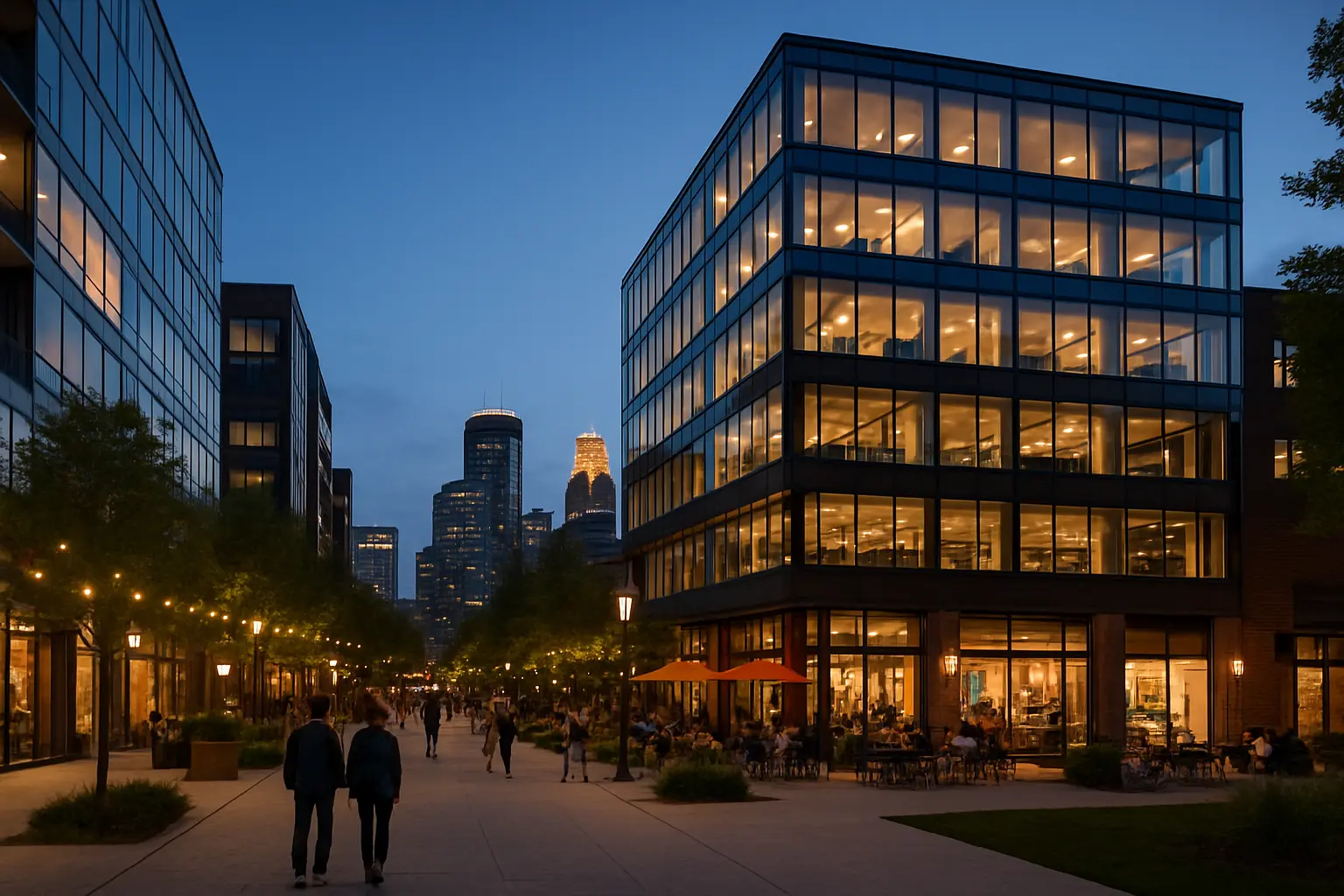The Twin Cities' Business District Evolution: From Traditional to Trendy
Discover how Minneapolis-St. Paul's commercial zones are transforming into vibrant mixed-use communities that blend work, life, and leisure.

The Changing Face of Twin Cities' Commercial Districts
The Twin Cities metropolitan area is witnessing a remarkable transformation as traditional business districts evolve into dynamic, multifaceted spaces that cater to modern lifestyle demands. These emerging districts are breaking away from the conventional nine-to-five office environment, creating vibrant communities where people can work, live, and play within walking distance.
Modern Mixed-Use Developments
Across the Twin Cities, ambitious mixed-use projects are reshaping the urban landscape. Wayzata's Lake Street District has become a model for sustainable development, combining premium office spaces with upscale retail and residential options. The district's transformation has created a walkable community that maintains its historic charm while embracing modern amenities.
Innovation in Suburban Centers
Eden Prairie and Minnetonka are leading the charge in suburban mixed-use development:
- Eden Prairie Center District: The area has evolved beyond traditional retail to include creative office spaces, boutique hotels, and urban-style apartments.
- Minnetonka's West End: This development showcases how suburban locations can achieve urban vibrancy through thoughtful planning and diverse amenities.
The Rise of Live-Work-Play Communities
The concept of live-work-play has taken root across the Twin Cities, with several districts emerging as success stories:
Minneapolis Innovation
The North Loop neighborhood exemplifies successful urban transformation. Once an industrial warehouse district, it now buzzes with:
- Tech startups and creative agencies
- Artisanal food halls and craft breweries
- Luxury apartments and boutique hotels
- Independent retailers and art galleries
Suburban Success Stories
St. Louis Park's West End has become a blueprint for suburban mixed-use development, offering:
"The West End represents the future of suburban development – a perfect blend of urban amenities with suburban convenience." - Local Urban Planning Expert
Meanwhile, Maple Grove's Central Park development has created a new downtown experience, featuring:
- Year-round community gathering spaces
- Premium office environments
- Diverse dining and entertainment options
The Future of Twin Cities Real Estate Investment
These evolving business districts represent more than just a trend – they're shaping the future of real estate investment in the Twin Cities. Developers and investors are increasingly focused on creating sustainable, community-oriented spaces that offer:
- Enhanced work-life balance opportunities
- Reduced commute times and carbon footprints
- Stronger community connections
- Higher property values and investment returns
As these districts continue to mature, they're setting new standards for urban development and proving that the future of commercial real estate lies in creating integrated communities rather than isolated business zones. The Twin Cities' transformation serves as a model for other metropolitan areas looking to adapt to changing workplace and lifestyle preferences.


